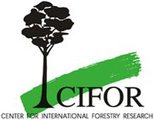The Center for International Forestry Research (CIFOR) has presented a report titled, 'Governing the Design of National REDD +: An analysis of the power of agency,' which investigates how policies, media coverage and policy networks affect REDD+ outcomes based on studies in Brazil, Cameroon, Indonesia, Nepal, Papua New Guinea and Viet Nam.
 28 October 2013: The Center for International Forestry Research (CIFOR) has published a report, titled ‘Governing the Design of National REDD+: An analysis of the power of agency,’ which investigates how policies, media coverage and policy networks affect REDD+ outcomes based on studies in Brazil, Cameroon, Indonesia, Nepal, Papua New Guinea and Viet Nam.
28 October 2013: The Center for International Forestry Research (CIFOR) has published a report, titled ‘Governing the Design of National REDD+: An analysis of the power of agency,’ which investigates how policies, media coverage and policy networks affect REDD+ outcomes based on studies in Brazil, Cameroon, Indonesia, Nepal, Papua New Guinea and Viet Nam.
The report reveals that much of the discourse surrounding REDD+ ignores the root causes of deforestation despite the fact that these causes are typically well known. In fact, according to CIFOR, the most significant driver of deforestation is agriculture, followed by timber extraction, fuelwood collection, infrastructure development, urban expansion and wildfires. However, CIFOR notes that many of the REDD+ related documents fail to include a complete analysis of the drivers of deforestation.
According to the report, one of the reasons for the lack of focus on the root causes of deforestation is attributable to the interests of stakeholders, which often go against the significant policy reform that would be required to address deforestation. Furthermore, many of the non-governmental actors involved focus on social justice and multiple benefits, rather than deforestation drivers, while those that do focus on root causes tend to lack the authority to make decisions.
CIFOR is a member of the Consultative Group on International Agricultural Research (CGIAR). [CIFOR News] [Publication: Governing the Design of National REDD +: An analysis of the power of agency]